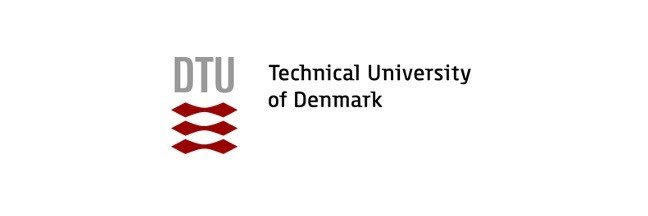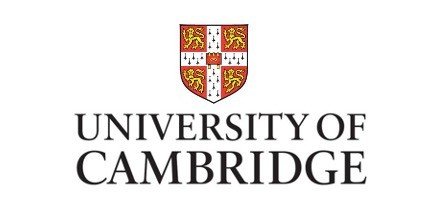Job Description
The Department of Environmental and Resource Engineering (DTU Sustain) at the Technical University of Denmark (DTU) offers a full-time Tenure Track Researcher position in Environmental Sustainability Assessment. A researcher position in Denmark is equivalent to an Assistant Professor, with a stronger focus on project acquisition and a lesser focus on teaching activities although some teaching responsibilities cannot be ruled out. In DTU tenure track, after a maximum period of six years, researchers may be transferred to a permanent position as a senior researcher if given a positive academic assessment at the end of the tenure track process.
The position aims to develop new life-cycle-based inventory and impact assessment methods for improved environmental sustainability assessment of products and technologies in a team of international front-runners in life cycle assessment.
The position is offered at the Section for Quantitative Sustainability Assessment (QSA) of the Department of Environmental and Resource Engineering (DTU Sustain). You will become part of an energetic and team-based research environment with around 50 international staff members, postdocs, and PhD students. Collaboration with researchers affiliated to the DTU Centre for Absolute Sustainability, which is co-hosted at QSA, is also foreseen.
Responsibilities and qualifications
We seek a candidate with the potential for independent research, a willingness to collaborate and interact with other researchers, and the ability to disseminate research in seminars, conferences, and teaching classrooms.
Required qualifications:
- You should have a PhD degree in environmental engineering, chemical engineering, chemistry, or a similar field
- You should have expertise in the fields of life cycle impact assessment method development, life cycle inventory modelling, material flow analysis, and/or related areas
- Understanding of key mathematical concepts relevant to the field and programming skills, are important (although advanced or specialized expertise is not required)
- A strong motivation for research and excellent communication skills in English are essential for a successful application
Your primary tasks will be:
- Developing new approaches for life cycle inventory (LCI) modelling, including dataset generation, prospective modelling, etc. Primary focus will be on applications within the chemicals and biochemicals sector, but ability to work with other domains of applications will be important
- Developing consistent life cycle impact assessment (LCIA) methods for different impact categories, both at midpoint and endpoint levels, with a primary (but not limited to) focus on metal resource use, carbon (fossil and renewable), and aggregates (sand, stone) resources
As part of your activities, you are expected to:
- Conduct excellent research and developing the field in one or more of the above-mentioned research areas
- Disseminate your research in scientific publications and at international conferences
- Take an active part in the management of projects where you will be involved
- Develop and maintain collaborations with academics within and outside DTU, as well as with private and public sectors experts, to support sustainable transition in different sectors and systems
- Secure national or international funding to advance science in line with your research vision
- Participate in teaching activities, including the co-supervision of MSc and PhD student projects
Successful candidates are expected to develop academic visibility, and over time establish national and international research leadership within their field.
You must contribute to the teaching of courses. DTU employs two working languages: Danish and English. You are expected to be fluent in at least one of these languages, and in time are expected to master both.
As formal qualification you must hold a PhD degree (or equivalent).
You will be assessed against the responsibilities and qualifications stated above and the following general criteria:
- Research experience
- Experience and quality of teaching
- Research vision and potential
- International impact and experience
- Societal impact
- Innovativeness, including commercialization and collaboration with industry
- Leadership, collaboration, and interdisciplinary skills
- Communication skills
What we offer
We offer a rewarding and challenging job in an international and highly motivated research environment. We strive for academic excellence in a team characterized by collegial respect and academic freedom while taking initiative and responsibility.
We offer an international and team-oriented research environment in an elite university based in the Greater Copenhagen area. We have excellent opportunities for collaboration within the department and across DTU departments, including teaching and supervision/co-supervision of graduate students.
Salary and terms of employment
The appointment will be based on the collective agreement with the Danish Confederation of Professional Associations. The allowance will be agreed upon with the relevant union.
Expected starting date is 1 May 2024 (or according to mutual agreement). The position is a full-time position.
The position is part of DTU’s Tenure Track program. Read more about the program and the recruitment process here.
You can read more about career paths at DTU here.
Further information
Further information may be obtained from Dr. Mikolaj Owsianiak, email: miow@dtu.dk
You can read more about the DTU Sustain department at https://sustain.dtu.dk/en
If you are applying from abroad, you may find useful information on working in Denmark and at DTU at DTU – Moving to Denmark.
Application procedure
Your complete online application must be submitted no later than 31 January 2025 (23:59 Danish time).
Applications must be submitted as one PDF file containing all materials to be given consideration. To apply, please open the link “Apply now”, fill out the online application form, and attach all your materials in English in one PDF file. The file must include:
- Application (cover letter)
- Vision for teaching and research for the tenure track period
- CV including employment history, list of publications, H-index and ORCID (see http://orcid.org/)
- Teaching portfolio including documentation of teaching experience
- Academic Diplomas (MSc/PhD)
- Research statement, incl. research vision for the tenure track period
- List of publications indicating 3-5 most relevant scientific achievements
- 2 support letters from professional referees (e.g. former supervisors, senior collaborators)
Applications received after the deadline will not be considered.
All interested candidates irrespective of age, gender, disability, race, religion or ethnic background are encouraged to apply. As DTU works with research in critical technology, which is subject to special rules for security and export control, open-source background checks may be conducted on qualified candidates for the position.
The Department of Environmental and Resource Engineering (DTU Sustain) is one of the largest university departments specializing in environmental and resource engineering in Europe. The department conducts research, development, scientific advice, and provides educational programs and services to society. We work to develop new environmentally friendly and sustainable technologies, methods and solutions, and to disseminate this knowledge to society and future generations of engineers. The department has approximately 300 employees from more than 30 nationalities.
Technology for people
DTU develops technology for people. With our international elite research and study programmes, we are helping to create a better world and to solve the global challenges formulated in the UN’s 17 Sustainable Development Goals. Hans Christian Ørsted founded DTU in 1829 with a clear mission to develop and create value using science and engineering to benefit society. That mission lives on today. DTU has 13,500 students and 6,000 employees. We work in an international atmosphere and have an inclusive, evolving, and informal working environment. DTU has campuses in all parts of Denmark and in Greenland, and we collaborate with the best universities around the world.





